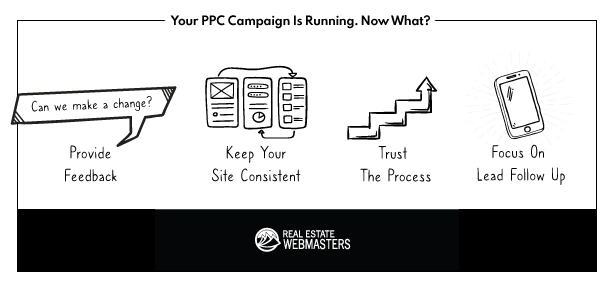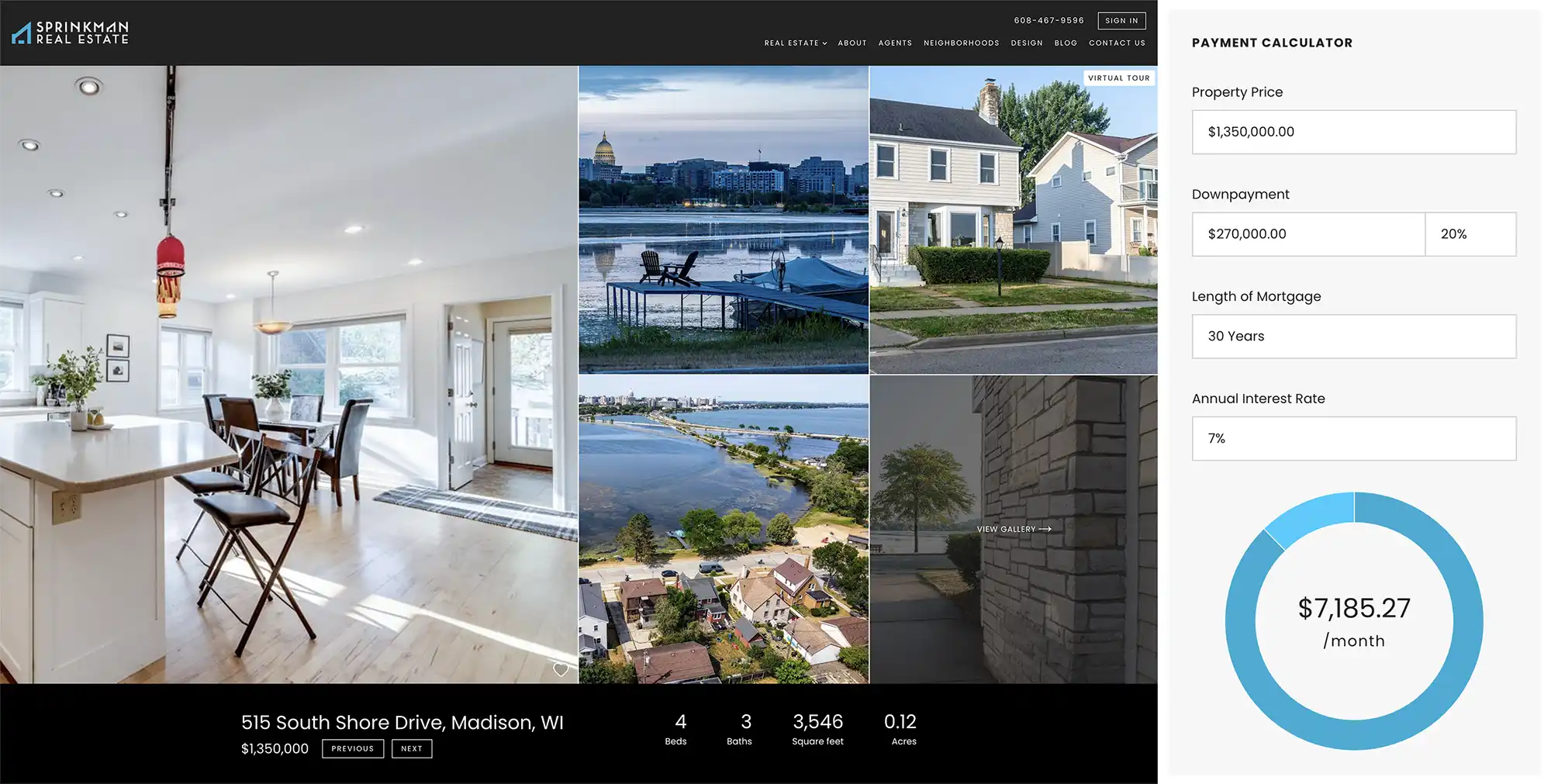How User Feedback Continuously Improves Websites for Realtors®
Prioritizing User Feedback
In the digital world of real estate, the voices of your clients echo the loudest. User feedback isn't just a one-way dialogue, it's the pulse of your online presence. Whether you're a seasoned realtor or a budding professional, tapping into this goldmine can redefine your digital journey. Websites for Realtors® vary drastically in quality, as does every other type of website, but taking a user-centric view can give you a tremendous leg up. Let's dive into the secret of feedback-driven success.
The Importance of Listening
In any business, the voice of the customer is paramount. For Realtors®, this voice provides insights that can shape the trajectory of their business. By actively listening to users, realtors can uncover hidden pain points, identify areas for improvement, and discover what truly resonates with their audience. This isn't just about collecting feedback; it's about deeply understanding and acting upon it.
When Realtors® prioritize user feedback, they're sending a clear message: "We value your opinion." This fosters a sense of trust and loyalty, ensuring that clients feel heard and understood. Over time, this relationship-building can lead to increased referrals, repeat business, and a stronger brand reputation.
In summary,
- Listening bridges the gap between Realtors® and clients.
- It helps in refining marketing and sales strategies.
- Active listening can lead to innovative solutions.
Tip: Schedule feedback sessions with clients to ensure you're always in tune with their needs and concerns.

A testimonial for Smith & Associates in St. Petersburg, FL.
Tools to Facilitate Feedback
Thankfully, collecting feedback has become more streamlined and efficient. Analytics and user behavior tracking tools provide Realtors® with a wealth of data, showcasing how users interact with their websites. This data can reveal patterns, preferences, and areas that might need improvement. For instance, if a particular page has a high bounce rate, it might indicate that users aren't finding the information they need.
By leveraging tools like REW CRM, sending surveys and questionnaires, on the other hand, offer a more direct approach. By posing specific questions to users, Realtors® can gain insights into their experiences, preferences, and pain points. This qualitative data complements the quantitative data from analytics, providing a holistic view of user behaviors and needs.
In summary,
- Analytics offers insights into user navigation patterns.
- Surveys sent by REW CRM provide direct feedback from users.
- Combining both tools gives a 360-degree view of the user experience.
Tip: Regularly update your surveys to reflect the current market trends and ensure you're capturing the most relevant feedback.
Enhancing PPC/SEO
User insights are a goldmine for refining PPC and SEO strategies. By understanding what users are looking for, Realtors® can craft more targeted and effective ad campaigns. For instance, if feedback indicates that clients are particularly interested in eco-friendly homes, this can be highlighted in PPC campaigns to attract a growing niche audience.
Similarly, SEO can be enhanced by incorporating keywords and phrases that users frequently search for. By aligning content with user intent, Realtors® can ensure that their websites rank higher in search results, driving more organic traffic and potential leads. Using tools like Google's Keyword Planner, or Ahrefs' Keyword Explorer can give you insights into what potential clients are searching for in the area that you haven't even met. Estimated search volumes are a great way to understand what people are looking for - combine this with Google Trends, and you'll get an idea of what topics are gaining or losing popularity.
In summary,
- User insights can identify high-performing keywords.
- Feedback helps in optimizing ad copy and landing pages.
- Aligning with user intent boosts organic search rankings.
Tip: Review user feedback when updating PPC and SEO strategies to ensure alignment with evolving existing and potential client needs.

The four step process to follow while your PPC campaign is active.
A User-Centric Website
A website is often the first point of contact between a realtor and a potential client. As such, it's critical that this digital storefront reflects the needs and preferences of its users. A user-centric approach to website design ensures that the site is intuitive, responsive, and tailored to the audience's needs. This might mean incorporating features like virtual tours, mortgage calculators, or localized property listings based on the feedback you receive.
By customizing websites based on user feedback, Realtors® can create a more engaging and seamless experience for visitors. This not only increases the chances of converting leads but also ensures that clients have a positive interaction with the brand, fostering trust and loyalty.
In summary,
- User-centric design enhances user engagement.
- Feedback-driven features to cater to specific client needs.
- A tailored website can differentiate a realtor in a competitive market.
Tip: Test your website's user experience with a diverse group of users to ensure it remains intuitive, and user-friendly for everyone who experiences it.

Sprinkman Real Estate - an example of a user-centric website design.
In Conclusion
Navigating the digital maze of real estate can be daunting, but with the compass of user feedback, every path leads to success. By valuing each comment and critique, you're not just refining your website - you're forging deeper connections. So, embrace every feedback as a golden ticket. Act accordingly and watch your real estate business soar.
Websites for Realtors® FAQ
What is the difference between analytics/user behavior tracking and surveys/questionnaires?
Analytics and user behavior tracking provide quantitative data about how users interact with your site, while surveys and questionnaires offer qualitative insights directly from the users about their experiences and preferences.
How often should I seek feedback from my clients?
While there's no one-size-fits-all answer, it's beneficial to seek feedback regularly, especially after implementing new features or services, to ensure consistent improvement.
How do I address negative feedback?
Addressing negative feedback constructively involves acknowledging the feedback, understanding the root cause, and taking actionable steps to resolve the issue. Open communication with the client is key.
Can user feedback help in differentiating my services in a competitive market?
Absolutely! By actively seeking and implementing feedback, you can tailor your services to meet specific client needs, setting you apart from competitors.
If I'm starting a new website, how can I get the best foundation to build off of?
Contacting Real Estate Webmasters about our award-winning custom-made websites for Realtors® will absolutely provide you with a fantastic place to start.
